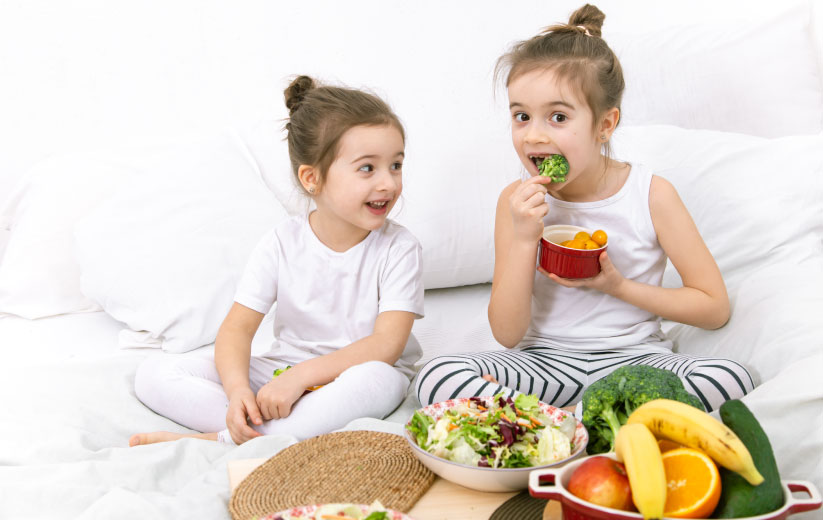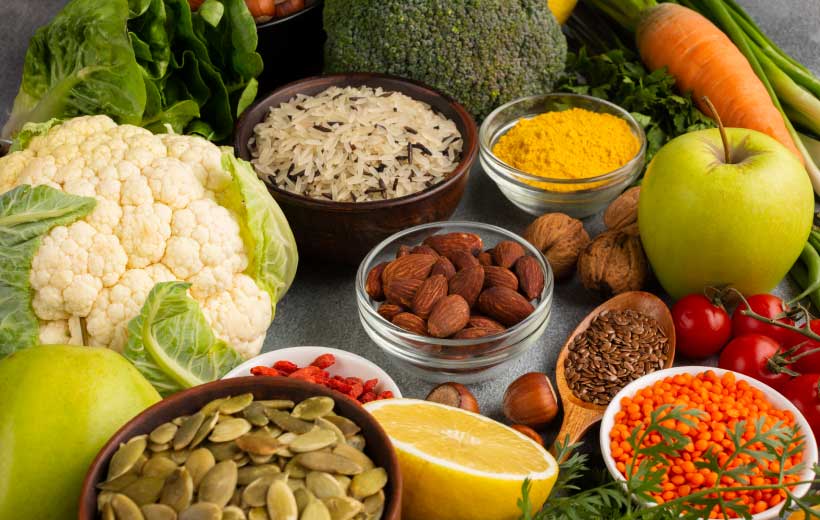Childhood obesity is a growing concern worldwide. It leads to an increase in childhood diabetes, cholesterol, osteoporosis, fatty liver, asthma, and heart disease. Diseases that are common in adulthood are now appearing at younger ages.
Losing baby weight should be done with caution. Parents must develop a safe weight loss plan in consultation with a pediatrician and dietitian. This is because an unscientific weight loss plan can interfere with your baby’s nutrition, growth, and mental health. Besides, not what works for adults will have the same effect on children because their bodies are still developing.
1. Calculate the number of calories your child consumes
You should not remove too many calories from your child’s diet by accident because they provide energy and have other essential health benefits. The calorie needs that each child needs depends on the age, sex, BMI, and physical activity of each child. You need to know the exact amount of calories your child needs for proper growth. Anything more than that will hinder your baby’s weight loss.
2. Low sugar diet
You don’t have to eliminate carbohydrates from your child’s diet. Instead, you should choose low or medium-sugar carbohydrates like broccoli, carrots, apples, berries, beans, nuts, peanut butter, and yogurt… and avoid carbohydrates with High sugar content such as corn, potatoes, white rice, juice, and jam.
3. Eat lots of fruits and vegetables
You should include lots of colorful fruits and vegetables in your child’s diet. Children should eat whole fruit rather than juice. This is because the juice has less fiber, which is good for digestion, than whole fruit, and if added sugar adds extra calories.
4. Drink lots of water
Do not give children juices, energy drinks, soft drinks… When they are thirsty because they make them gain weight. The best beverage is filtered water to help your baby lose weight.

5. Good night
Ideally, children need 9 to 11 hours of sleep and adolescents need 8 to 10 hours of sleep. Early sleep and a good night’s sleep are essential for proper growth and metabolism that help maintain a child’s body weight.
6. Reduce salt intake
According to experts, to lose weight children, parents need to minimize foods with high salt content in their children’s diets. The sodium content causes the body to retain water and bloat. At the same time, children also need to avoid canned and frozen foods that are high in sodium.
7. Increase food sources high in proteins
Protein-rich foods help stimulate growth hormone that helps break down fat into energy. Therefore, children should eat eggs, vegetable protein such as beans (all foods such as red beans, and black beans …), legumes, fish, and lean meat such as chicken. Foods such as low-fat yogurt, butter, cheese, unprocessed cheese, and margarine to provide dairy protein are also effective in weight loss for babies.
8. Meal plan
Children should be avoided for long between meals because an empty stomach for many hours will lead to overeating at the next meal. Studies recommend that three small meals and two snacks daily are reasonable.
9. Daily exercise
Exercising and being active for at least 60 minutes a day is recommended to help your baby lose weight. You can guide your child to start exercising for 15-20 minutes a day and gradually increase the time. Let your children join their classmates, this will encourage them to participate enthusiastically. Some good exercises for children to lose weight are gymnastics, swimming, jogging, and cycling.

10. Correct understanding of fat
Not all fats are harmful or cause obesity. If to help your baby lose weight, but eliminate fat, it will adversely affect the child’s immune system, nervous system, and health. You need to consume fats like unsaturated oils (olive, canola, soybean, etc.), salmon, anchovies, almonds, sesame seeds, pumpkin, and flaxseeds… Fat helps slow down digestion and keeps the stomach full for a long time.




